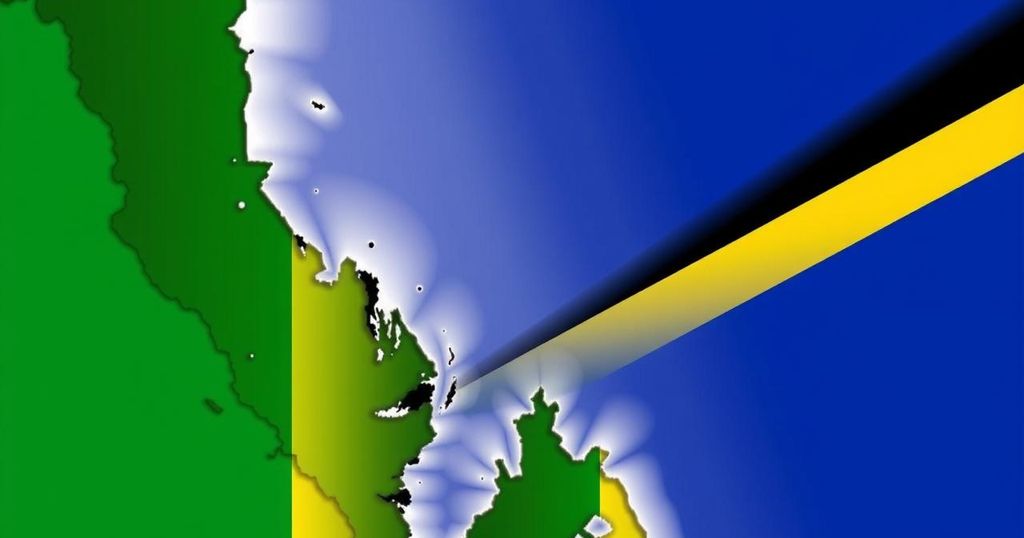Tanzania has improved security along its southern border regions, particularly Lindi, Mtwara, Pwani, and Ruvuma, in the wake of past violence and unrest. Recent visits by President Samia Suluhu Hassan and the resurgence of local trading activity signal a return to stability. However, underlying issues of marginalization pose risks for future conflict, requiring strategic development initiatives to engage local populations meaningfully.
In recent years, Tanzania has made substantial strides in stabilizing its southern border regions of Lindi, Mtwara, Pwani, and Ruvuma, particularly following a turbulent period characterized by criminal activities and insurgency. While there was considerable unrest leading to the 2020 elections, including a cross-border attack, the situation has improved markedly under President Samia Suluhu Hassan’s leadership. Her visits to Ruvuma and Mtwara in September 2023 indicate a return to stability unseen for nearly a decade, suggesting a balanced security landscape compared to prior years.
Following a long history of violent incidents, including a notable terrorist insurgency from 2014 to 2018, the resurgence of business activities, particularly in the local markets, points to renewed confidence among traders. The lifting of restrictions at key border crossings with Mozambique, although with some curfews still in place, further exemplifies the security recovery in the area. Despite a recent withdrawal of SADC troops from Mozambique, the impact on Tanzania’s security remains low, bolstered by daily trade between the two countries substantially recovering from significant downturns during the peak of violence.
However, underlying issues of marginalization persist in southern Tanzania, with locals feeling neglected compared to other regions, which could breed future unrest. Proposals such as the Mtwara Development Corridor promise economic revitalization through infrastructure improvements, yet potential conflicts are evident. Local populations may not fully benefit from projects like the Liquefied Natural Gas (LNG) project due to skill shortages, thus exacerbating feelings of exclusion and marginalization. To mitigate these risks, increased community engagement and adjustments to legal frameworks governing resource management are necessary to ensure broader participation and benefit-sharing among local citizens. Such approaches are essential not only for sustaining security but also for fostering long-term regional stability.
Tanzania’s southern border regions have experienced significant unrest over the past decade, with incidents of violence, insurgency, and marginalization affecting local communities. The government response has evolved, particularly since the late President John Pombe Magufuli, who was cautious about engaging these areas during his re-election campaign. Under the current administration, recent presidential visits to the affected regions signify a robust commitment to re-establishing stability and security, outlining a shift towards fostering local economic activity as a means of bolstering communal support. Issues of poverty and marginalization continue to loom large, complicating security dynamics and necessitating targeted policy interventions that can engage communities meaningfully.
In conclusion, while Tanzania has successfully stabilized its southern border regions through decisive government actions and increased trade activity with Mozambique, challenges remain. Addressing the lingering sentiments of marginalization is crucial for preventing potential future conflicts. Strategic initiatives aimed at local community development, alongside inclusive economic opportunities related to projects such as the LNG venture, are vital to fostering long-term stability and cohesion within the region. Ultimately, a balance between security measures and economic incentives will be necessary for sustaining peace.
Original Source: thechanzo.com






